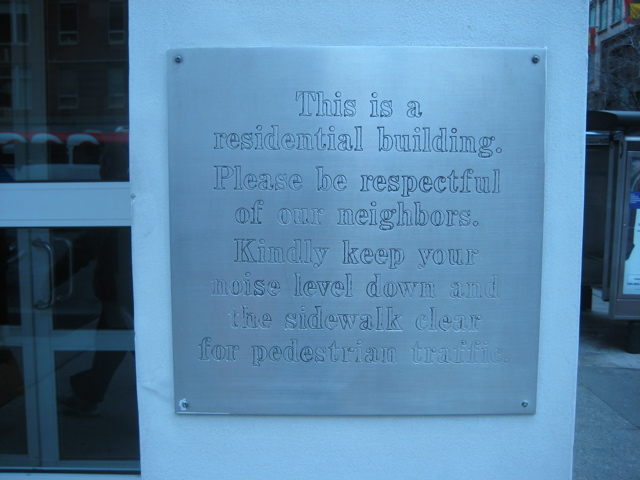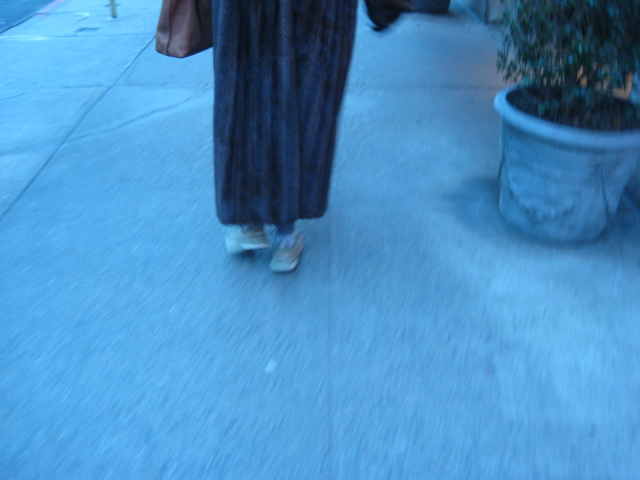You may have heard Etiquetteer tell this story before, but it came to mind vividly again, and Etiquetteer must tell (or retell) it now for the record. Etiquetteer has always had an interest in seeing things done with Perfect Propriety and with people Behaving Well. And as a college student, Young Etiquetteer had an equal and abiding interest in Free Food. So one day many years ago Young Etiquetteer received with pleasure an invitation from an elderly lady to a luncheon at the Ritz-Carlton. What could be more Perfectly Proper than a luncheon at the Ritz-Carlton? Young Etiquetteer accepted the invitation with alacrity and brushed off his best suit in preparation.
Now this elderly lady - let's refer to her as Madame - who Young Etiquetteer had never really met, was a friend of Young Etiquetteer's Stern Grandmother, but there was no reason to suspect she might be any different from the legions of elderly ladies Young Etiquetteer had been entertaining since birth: full of indulgent smiles, Christian rectitude, canasta, and a dash of genealogy. Young Etiquetteer's eyes were to be opened, as Madame's principal focus was Herself and Her Reactions, as we shall see.
In those days*, the Ritz-Carlton dining room was described by many as the most beautiful room in Boston, and to a young man who hoped to be Perfectly Proper it was considered a crucible of Perfectly Propriety. From its snowy napery to its brocade draperies to its famous cobalt glass chandeliers and goblets, the room represented what Americans used to aspire to (and should continue aspire to today) as the Good Life. But almost from the beginning, Madame set a very different tone.
She was first nonplussed (but quietly) about an odd feature of 1980s restaurant etiquette: maitre d's who kissed on the mouth. Next, loudly exclaiming over the beauty of the china, Madame picked up the service plate like the latest bestseller to read the trademark. Young Etiquetteer, who had not only been taught that the first thing you did at table was put your napkin in your lap but also that you never did anything so gauche as to examine the provenance of the china, was nearly demolished by this. But more was still to come.
This occasion proved to be Young Etiquetteer's first encounter with service à la russe, which requires one to serve oneself each course from large platters offered by the waiter. Negotiating salmon with asparagus and hollandaise sauce is difficult enough for the uninitiated, but made even more so with Ceaseless Commentary on the novelty of the service from Madame, who thought it was different and charming, and didn't fail to mention this at top volume anytime a waiter - any waiter - appeared within two feet of us. She was having a wonderful time, and wanted everyone to know it!
This luncheon was not an ordinary luncheon, but a fashion luncheon featuring beautiful models in exquisite clothes (day and evening) languidly strolling among the tables. The place Young Etiquetteer was filling was originally intended for a Female Relation of Madame's who was unable to attend. Young Etiquetteer was one of perhaps three men present, somewhat ambivalently relishing the Walter Mitty role, but enjoying the setting, the (free) luncheon, and indeed the couture promenade. Madame was enjoying it, too, and assailed each model with Expressions of Delight, and also some Embarrassing Questions. She asked one model for her phone number to share with her son! Etiquetteer did not know quite where to look.
But the most embarrassing moment came after dessert. With the conclusion of the luncheon, the models were circulating with little lipsticks as favors for the ladies. Madame dearly wanted one to share with her Female Relation, but she wanted one for herself more. And when a beautiful model presented her with a lipstick, Young Etiquetteer froze in fright to hear Madame respond with Six Horrifying Words:
"Aren't you gonna give him one?"
Young Etiquetteer withered under the icy stare of the model, who asked "Do you need one?" in such a way as to question Young Etiquetteer's masculinity, upbringing, and right to exist - none of which seemed to matter to Madame, so intently was she focused on a free lipstick. "Certainly not!" replied Young Etiquetteer, whose limit had been reached, and the model passed on. Words were passed, but the mood restored, and of course Young Etiquetteer omitted any reference in the Lovely Note mailed the next day.
The morals of this tale, if there are any, would be that a) consideration of the feelings of others is an important part of daily life, b) to be distracted by trinkets indicates a lack of breeding**, and c) that there is no such thing as a free luncheon.
*The mid-1980s.
**The lyric from Chess comes to mind: "Trinkets in airports sufficient to lead them astray."














